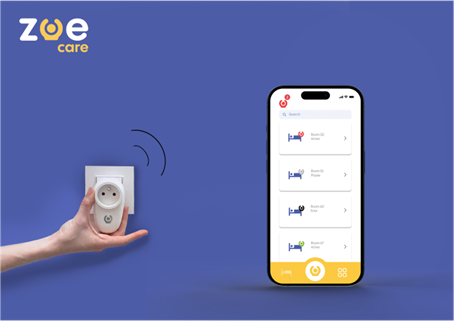Each year, 30-40% of elderly people living at home suffer falls—and this goes up to 50% among residents of nursing homes. In the United States, this is more than 15 million falls by the elderly each year. This is a real public health problem, since 10% of victims stay on the ground for more than an hour—a fatal lapse of time in some cases.
Enter Zoe Care, unveiled at CES earlier this month. Zoe Fall’s AI (artificial intelligence) analyses the variation of radio waves to identify a person’s movements. In case of a fall, an alert is sent automatically to a caregiver’s mobile application so they can respond rapidly.
Here is how this can help:
- No accessories or cameras, as the tech detects falls by gathering and analyzing Wi-Fi signals through a sensor connected to any electrical outlet.
- A machine learning algorithm can identify movements in realtime through the analysis of disturbances to these waves.
- The algorithm developed by Zoe Care is embedded directly in the Wi-Fi receiver to ensure total respect of privacy.
Looking to the future, this patented technology will in time be able to detect other difficulties linked to the loss of autonomy, such as malnutrition, wandering, and sleeping or behavioral difficulties. Continue to watch the rise of new AI-driven technologies that will help the elderly age-in-place at home.


